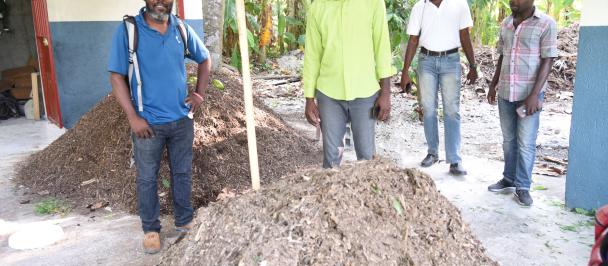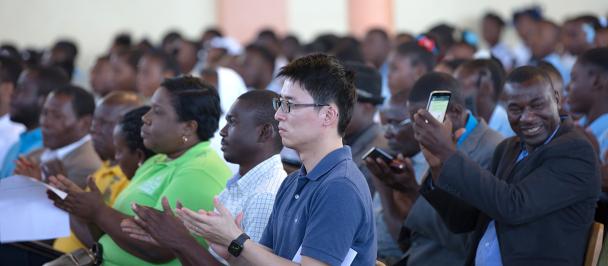By Pierre ANTOINE, Head of Experimentation, UNDP Haiti, Accelerator Lab
What have we learned from data on solid waste management at the town hall level in Haiti?
23 août 2022
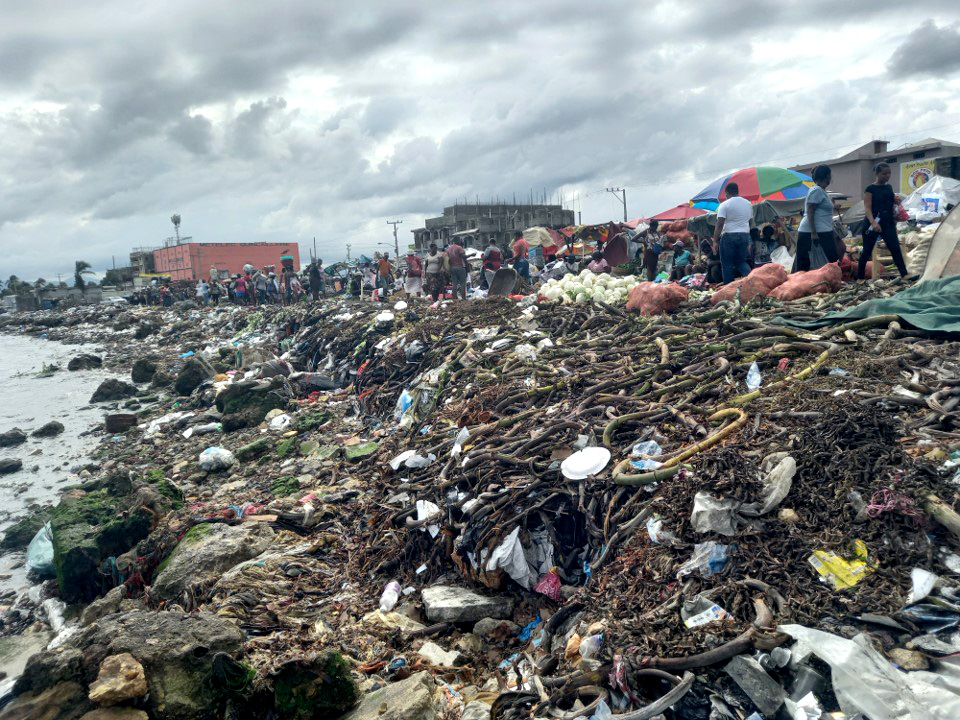
Photo: UNDP Haiti
The UNDP Haiti Accelerator Lab conducted a nationwide survey on solid waste management. As for the scope of this work, it covers an area of 27500 square kilometers which is the eastern third (1/3) part of the island shared with the Dominican Republic. Administratively, the national territory includes 10 departments, 146 communes and 571 communal sections. It is through this vast area that the accelerator lab of Haiti tries to analyze the problem of waste management with a view to proposing solutions.
Among other things, the town halls, by their importance in terms of hygiene and sanitation in the municipalities, have been an essential target. Overall, 138 municipalities (95%) responded to this survey.
- What solid waste survey data has taught us?
Numerically, our statistical population (138 town halls) is represented by 118 men (86%) and 20 women (14%). The participants hold, in most cases, key positions in the town halls. They can be either directors or mayors. This demonstrates the quality of our data.

a) Overview of solid waste management in municipalities
Solid waste management is a major challenge for the town halls. Since our ‘’sense-making’’ workshops on the subject, in the beginning of July 2021, town hall officials have been very quick to evoke their lack of material, financial and human resources for appropriate management of solid waste. Our findings during the survey only reinforce this view. In fact, almost 80% of the participants believe that town halls are not sufficiently equipped for good management of solid waste (figure). This information is in line with the statement of the principal mayor (Mr. Wilson Jeudy) of the town hall of Delmas, one of the few town halls with ongoing initiatives in terms of solid waste management. He said that some of his counterparts have no tax bases and are unable to acquire even light equipment such as shovels, wheelbarrows, rakes, machetes etc. that could be used for sanitation and cleaning purposes. As a result, they often call him to ask for his support. Another aspect of the precariousness of town halls in Haiti can be seen through their methods of solid waste management. In other words, the most common practice observed from the survey remains open burning and dumping in wild land. The surveys reveal a total lack of activities in the field of sorting and recovery of collected solid waste. For a deeper view into the data, an overall appreciation of the current situation with visualizations and further explanations can be accessed here. Moreover, it should be noted that a greater budgetary capacity and the determination to go beyond traditional practices that are harmful to the environment would probably stimulate the search for new solutions.
b) Citizen participation and awareness
Our findings show a lack of citizen participation in solid waste management. However, the focus groups and community meetings in the field indicate that some social leaders are aware of the solid waste issues and their potential effects on human health. Because, during these exchanges that incite debate, these social leaders prove to have a high level of knowledge on the subject. Nevertheless, these interventions preach a philosophy that opposes the most common behaviors in the communities such as open burning or dumping in unoccupied fields. In view of the piles of rubbish encountered in the urban centers of the country, we also conclude that this knowledge does not translate into real initiatives of hygiene or sanitation.
The findings follow the same path and expose a deficit in terms of participation and/or citizen engagement in solid waste management, as evidenced by the two graphs below. These data, added to our observation in the field highlights a dilemma: (1) the knowledge that the community has about certain problem vs. (2) the actions or initiatives that aim at solving it. In this vein, it would be necessary to launch new initiatives aimed at improving citizen engagement or motivation.
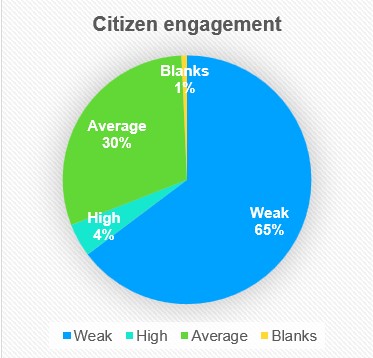
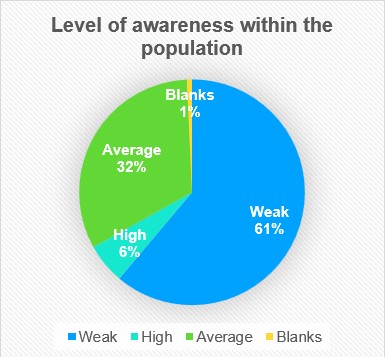
- What the data doesn't say but was noticed by the investigators?
Haiti has experienced, over the past three decades, a political and institutional crisis which is also reflected at the municipal (communal) level and its administrations. The mandates of the elected mayors came to an end two and a half years ago, i.e., in January 2020. In July of that same year, the central government, by presidential decrees, appointed the municipal commissions which fill the void left by the end of mandates of the mayors at town hall level. Since then, the delay in holding elections has worsened the situation of these administrations.
a) Immediate consequences for solid waste management
According to the testimonies of our data collectors deployed in the field, the sanitation and hygiene work in some municipalities only exists on paper. The laboratory team made similar observations during its visits for survey supervision.
In addition, our visit to the town halls was an opportunity for the interim agents to bring to light certain problems that hinder the functioning of the town halls. For example, alongside the lack of equipment already discussed, town hall employees have not received their salary for more than two years, which contributes to the creation of an atmosphere that is not conducive to innovation.
b) Local governance crisis
Investigators also reported the closure of approximately 10% of town halls at the time of the survey. Most of these town halls, 9 in total (Borgne, Port Margot, Milot, Acul du Nord, Sainte Suzane, Caracol, La Victoire, Dondon, Ranquite) are in the North of the country. In addition, the town halls of Ile à Vache (South), Fonds Verrettes (West) and Grande Saline (Artibonite) presented the same scenario. Under these conditions, some investigators had to make appointments in places other than the town halls to collect the information, while others found no one there who could provide this data. Consequently, this can be considered as a crisis of local governance likely to aggravate the problem of solid waste management as well as any data collection seeking to deepen the understanding of the phenomenon.
Our survey on the waste management within the town halls across the country reveals huge shortcomings that are being aggravated by a politico-institutional crisis that has been persisting for more than two years. The lack of citizen engagement, amid the institutional crises, further complicates the work of communal administrations already hampered by the lack of resources in the face of the enormity of the needs in the municipalities.Accelerator Lab Haiti
Conclusions
The primary responsibility for solid waste management in urban centers lies with the town halls. Also, this should not undermine the potential support of government entities, NGOs (Non-Governmental Organizations), CBOs (Basic Community Organizations) and UN agencies. Our survey on their waste management within the town halls across the country reveals huge shortcomings that are being aggravated by a politico-institutional crisis that has been persisting for more than two years. The lack of citizen engagement, amid the institutional crises, further complicates the work of communal administrations already hampered by the lack of resources in the face of the enormity of the needs in the municipalities.
As a result, the town halls, in their current state, show a rather limited dynamism in terms of initiatives and innovations in solid waste management which could be the subject of experimentation and scaling up. However, the warm welcome received by the investigators and the strong participation of the interim agents in the survey testify to both the curiosity and the desire of the latter to approach this problem from different angles.

 Locations
Locations